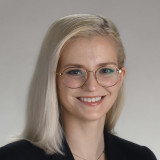The keynote speaker for the opening ceremony of this year’s American Academy of Otolaryngology - Head and Neck Surgery Annual Conference in Miami was Dr. Kelvin Kong, the first Aboriginal surgeon in Australia. His talk focused on his experiences growing up as part of the Aboriginal community, the past and current struggles faced by his community, and the ways he is using his time and knowledge to provide care to those who need it the most. It was a beautifully inspiring story and clearly spoke to the motivation that drove him to break barriers and defy stereotypes, but most of all it was heartbreaking. Dr. Kong is not wizened and in the twilight of his career - he’s in the prime of his career which is a saddening commentary on exactly how recently there were no Aboriginal surgeons in Australia. Based on his descriptions his community still faces truly horrendous levels of discrimination to this day.
Dr. Kong’s lecture made me think about disparities of care access and inherent discrimination patients in the US also face. Outreach and equity have long been cornerstone’s of the Academy’s mission and once I started looking for it, the topic was pervasive throughout the conference. A panel discussed ways to try to address some of the social issues often seen in trauma patients that can cause treatment failure like substance abuse and transportation issues. Multiple sessions tried to give general otolaryngologists guidance on how to start providing gender affirming care to patients who often struggle to find a provider in the area with the skills and willingness to help them. The room was chockerblock with people to hear about humanitarian missions to Ukraine to repair war injuries to those for whom nightly air raid sirens are now normal. There were even sections of the conference conducted in Spanish in order to include providers who speak a different language.
All of this content was incredibly galvanizing and it renewed my faith in my vocation to meet so many people that see how powerful a tool our jobs can be to make positive change and address some of the unfairness in the world. But how do we keep it going once we fly home and return to the endless inbox messages and crazy OR days? How do we make this kind of work a priority for our employers on a daily basis and not just when it makes a good soundbite? I hope all of my colleagues continue to fight the good fight and continue to get support from our Academy with more stories of progress to share next year.
Dr. Schopper has no conflicts of interest to report.
Illustration by April Brust







